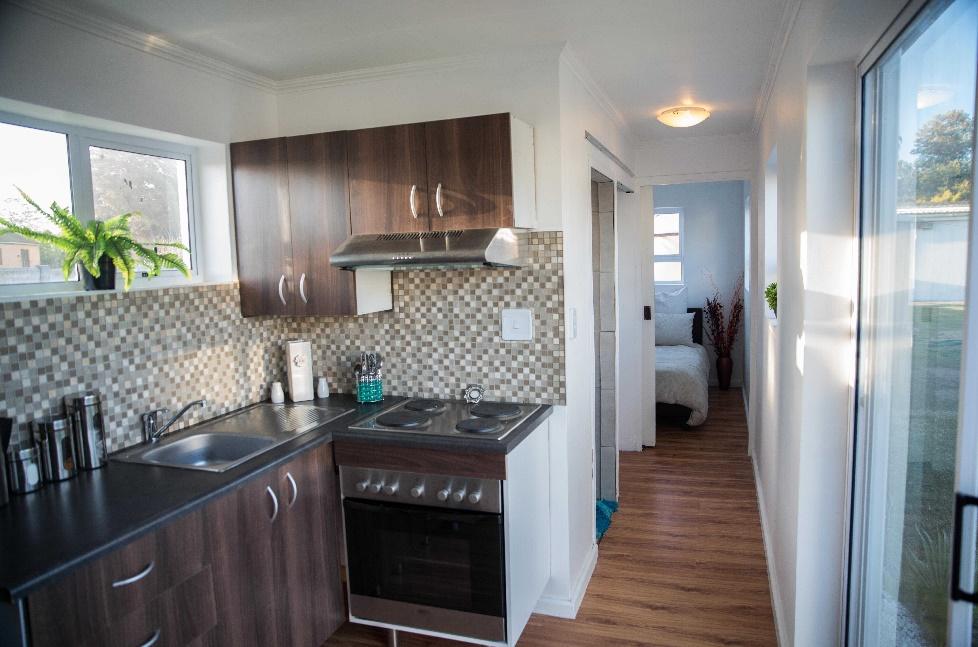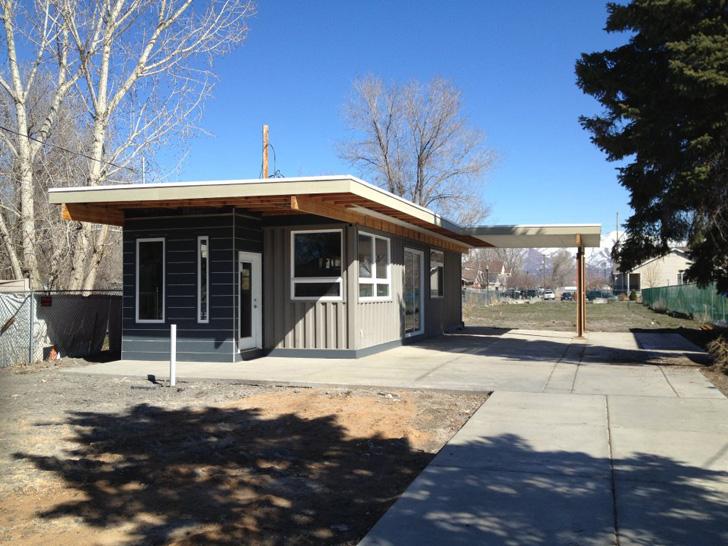The problem of homelessness for low-income families occurs worldwide, regardless of whether they are in rich or poor countries. Low-income families don’t have their own resources and also have difficulty accessing credit lines from financial institutions.
Some countries seek to facilitate access to subsidized funding, but there is still a portion of the population that can’t access these subsidies because they don’t have a minimum income that can guarantee access to the funding and its payment.

If access to housing is not possible in many cases by the ratio of Household Income to House Price, the plausible solution would be to seek technical solutions reducing costs of construction, since income is the limiting factor.
A South African company has developed economical housing solutions intended for families with limited access to residential credit, aligning with quality, durability, comfort, and environmental sustainability.

Berman-Kalil Housing Concepts, based in Cape Town, SA, develops housing projects through the use of transport containers that have been decommissioned. The three experienced partners Alicia Kalil, Bradley Nerman and Nick Thomates focused on the company’s leadership in Maslow’s Hierarchy Theory, where housing is one of man’s basic needs. In this way, they’ve studied constructive alternatives, with the use of containers.
In fact, the use of decommissioned transport containers as housing is not new, as this has been happening for several years. They are usually used for international shipping and after 20 years are decommissioned in compliance with international transport regulations, but are in perfect condition for any other uses, considering that they are extremely resistant to rust.

What these three enlisting partners did was to think of a better design of a housing project, in order to minimize the feeling of living in a cargo box. At the same time as reusing a material with a closed useful life, it is possible to reduce between 40% and 60% of the final cost of housing. Through a quick simulation with the company of the partners, an estimated price of US$31,000 can be obtained for a project of 2 containers of 40″, composed of 607 ft2 (56.4 m2), being 2 rooms, 1 bathroom, 1 living room and 1 equipped kitchen. There are smaller options, up to 1 container with 1 room, from US$19,000.
Container housing projects can have a complete environmental and ecological focus if we consider the very structure of a reused container, together with sustainable technologies such as photovoltaic roofing panels for electricity generation, as well as rainwater storage tanks for reuse in bathrooms. This could be a complete eco-design.
Initially the market could generate some resistance to the fact that it is a metallic transport box, but as it knows the project better, inside and out, the aspects of a pleasant and comfortable residence will outstrip the negative points. Having overcome the barrier of acceptance of its potential clients, the company, meanwhile, faces a second barrier in the market, regarding the current structuring of real estate financing.

Banks and governments do not characterize a modular container housing project as a conventional residence, where the collateral would be the property itself. At the moment, these are the company’s main efforts, to convert the banks from which their constructions are as solid as a conventional masonry dwelling and to include them in the conventional structuring of real estate financing.
However, what appears to be a problem for conventional banks may seem like a great opportunity for alternative micro-creditors or real estate investment funds, in which the environmental footprint is the big differential. After all these constructions have a life expectancy equal to a conventional residence.
Container residences are modular constructions that can be made in an industrial production line, quickly and in scale, and later transported and installed easily on the ground. In this way, the cost of credit or subsidies can be considerably reduced, since the financeable asset is only the house (transformed containers), and the land can be supplied or borrowed by the local government itself.
Anyway, with good architectural designs the existing technology in home comfort equipment, this seems to be a sustainable solution, ecologically correct and potentially accessible to a social class that currently lies on the banks of having their own home.
February 11, 2019
Charles Froze
IDEAS For Us
References:
http://www.berman-kalil.co.za/shipping-container-homes1/container-home-price-estimator/
https://www.discovercontainers.com/the-cheapest-5-shipping-container-homes-ever-built/
https://www.homeyou.com/fl/container-homes-orlando-costs
https://www.thecontainerhouse.com/
https://maerskcontainersales.com/searches/1039437067b4dfddfd62caec2a9e250e?page=2








